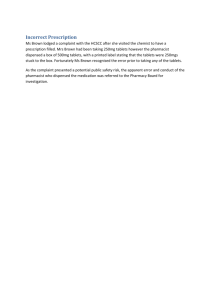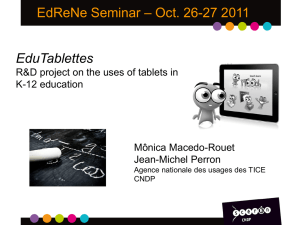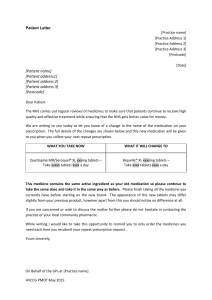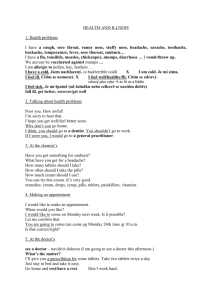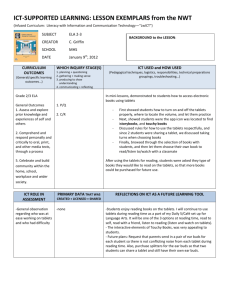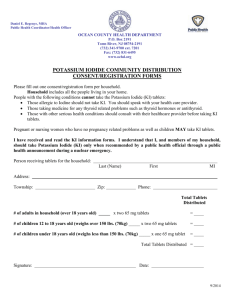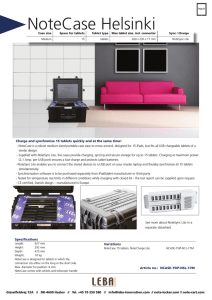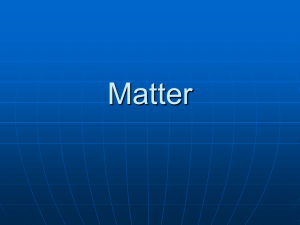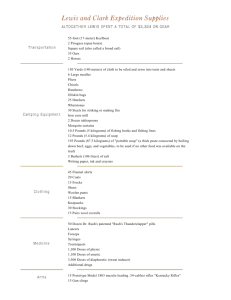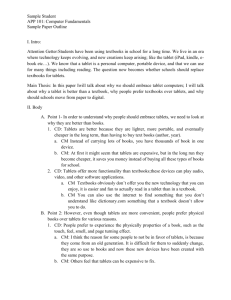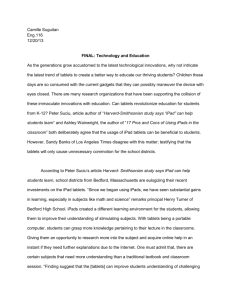File - Health Science 1 & 2
advertisement
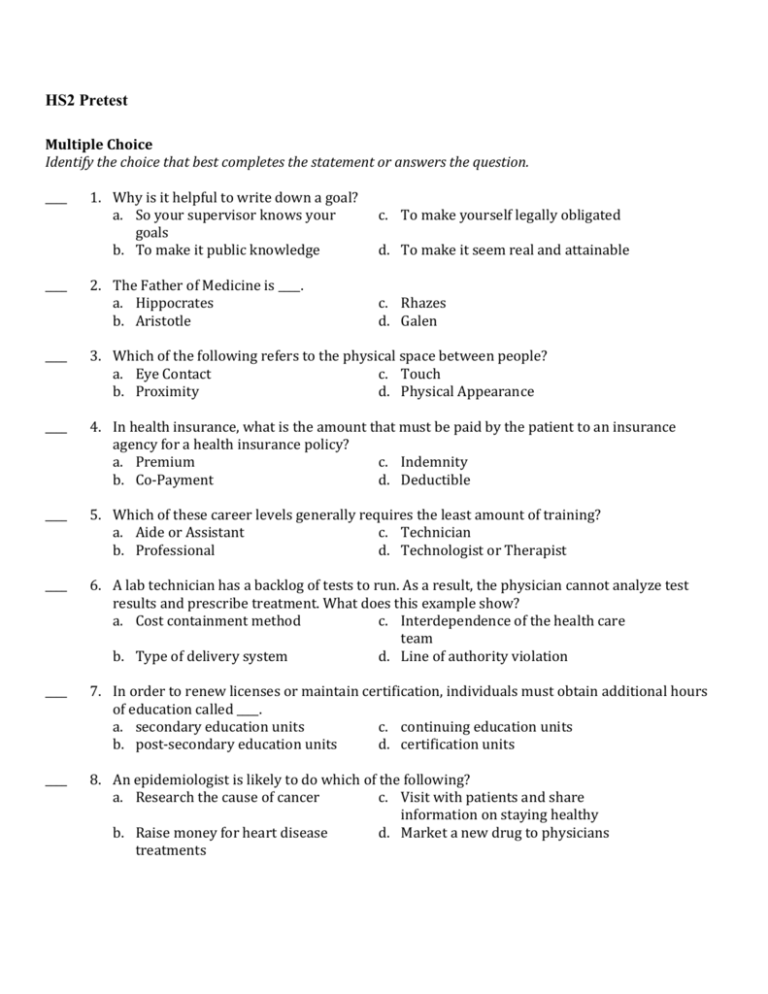
HS2 Pretest Multiple Choice Identify the choice that best completes the statement or answers the question. ____ 1. Why is it helpful to write down a goal? a. So your supervisor knows your goals b. To make it public knowledge c. To make yourself legally obligated d. To make it seem real and attainable ____ 2. The Father of Medicine is ____. a. Hippocrates b. Aristotle ____ 3. Which of the following refers to the physical space between people? a. Eye Contact c. Touch b. Proximity d. Physical Appearance ____ 4. In health insurance, what is the amount that must be paid by the patient to an insurance agency for a health insurance policy? a. Premium c. Indemnity b. Co-Payment d. Deductible ____ 5. Which of these career levels generally requires the least amount of training? a. Aide or Assistant c. Technician b. Professional d. Technologist or Therapist ____ 6. A lab technician has a backlog of tests to run. As a result, the physician cannot analyze test results and prescribe treatment. What does this example show? a. Cost containment method c. Interdependence of the health care team b. Type of delivery system d. Line of authority violation ____ 7. In order to renew licenses or maintain certification, individuals must obtain additional hours of education called ____. a. secondary education units c. continuing education units b. post-secondary education units d. certification units ____ 8. An epidemiologist is likely to do which of the following? a. Research the cause of cancer c. Visit with patients and share information on staying healthy b. Raise money for heart disease d. Market a new drug to physicians treatments c. Rhazes d. Galen ____ 9. Which of the following is true of human development? a. Everyone grows and develops at the c. People will strive for self-esteem same rate needs before safety needs. b. The areas of human development d. People grow and develop in order to are independent of one another. fulfill their basic needs. ____ 10. Which of the following requires special attention from caregivers in the early childhood stage? a. Daily exercise c. Social opportunities b. Growth rate d. Proper nutrition ____ 11. An example of a health career in the NHCSS therapeutic services cluster is ____. a. dental hygienist c. health educator b. phlebotomist d. process technician ____ 12. In which stage of grief will a person reject the idea that they are dying, or insist that the doctor has made a mistake? a. Acceptance c. Denial b. Depression d. Bargaining ____ 13. In the chain of infection, a pathogen leaving the body through sexual secretions is an example of ____. a. reservoir c. causative agent b. portal of exit d. mode of transmission ____ 14. In the chain of infection, an instrument contaminated with blood acts as a ____. a. portal of entry c. causative agent b. reservoir d. portal of exit ____ 15. The three things needed in order for a fire to start are ____. a. fuel, heat, oxygen b. fuel, oxygen, flammable material c. flammable material, oxygen, chemical reaction d. spark, oxygen, matches ____ 16. What do ht, wt, and TPR all have in common? a. They are all vital signs c. They are all subjective findings b. They are all measurements d. They do not have anything in common ____ 17. What do CBC, RBC, and Hct all have in common? a. They all deal with blood work c. They are all computerized tests b. They all deal with blood d. They have nothing in common ____ 18. What do ECG, CT, and EEG all have in common? a. All tests performed on the c. All tests that generate radiation cardiovascular system. b. All computerized tests d. They have nothing in common. ____ 19. Which of the following proportions is parallel? a. 20 mg : 1 tablet :: 20 g : X tablets c. 200 mg : 1 tablet :: 500 mg : X tablets b. 200 mg : 2 tablets :: X g : 5 tablets d. 500 g : 2 tablets :: 1 tablets : X g ____ 20. How many kilograms is 1,500 grams? a. 150 kilograms b. 15 kilograms c. 1.5 kilograms d. 15,000 kilograms ____ 21. What is the purpose of a TPR graph? a. Visual diagram of patient vital signs b. An easy way to tell how a medication is affecting a hospitalized patient c. A record of the patient’s daily weight d. A record of blood pressure, weight, and intake/output ____ 22. What is the purpose of a Snellen chart? a. Test for learning disabilities b. Measure for vision c. Detect color-blindness d. Peripheral vision 23. What is it called when a person’s freedom is intentionally violated? a. Libel c. Battery b. False imprisonment d. Invasion of privacy 24. If back blows do not clear an obstructed airway in an infant, what is the next step a rescuer should take? a. CPR c. Rescue breaths b. Abdominal thrusts d. Chest thrusts 25. Hand washing and routine cleaning are examples of what type of practice? a. Safety c. Surgical asepsis b. Medical asepsis d. Sterile
